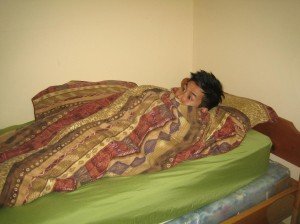There are a number of potential dangers in any home that you have to be familiar with. You can be prepared for these dangers if you will register in a first aid class. This is important in order to prevent injuries as well as being prepared on what to do.
Dangers caused by salmonella and E. coli
E. coli and salmonella are two forms of bacteria that can affect the intestinal region, resulting to symptoms that range from diarrhea up to dehydration which is life threatening. Humans are commonly infected with salmonella after consuming or handling dirty raw foods such as eggs, beef, poultry, vegetables and fruits. As for E. coli infection, it can occur if an individual accidentally eats contaminated foods that were not properly cleaned or cooked.
Before the handling of food, proper hand washing must be observed. Different cutting boards can be used. Use one for vegetables while another can be used for raw meat. Always keep raw meat, poultry and seafood separated from other refrigerated foods. Plates and utensils used on raw meat must be cleaned using hot soapy water before using again.
Carbon monoxide
Carbon monoxide is an odorless, flavorless gas that does not give any warning before making an individual very sick and can even cause death. As one of the dangers at home, it is known as a silent killer. Take note that contamination typically occurs once an organic fuel is being burned without good ventilation. Main sources of carbon monoxide include gas space and kerosene heaters, wood stoves, gas water heaters, automobile exhaust, fireplaces and smoke from tobacco.
It is best to hire a qualified technician to inspect your heating system, water heater or oil, coal or gas appliances on a yearly basis. You can have a carbon monoxide detector installed at home. Do not heat your home with a gas oven or gasoline powered device.
Lead

Always bear in mind that exposure to lead is connected to severe health issues that ranges from changes in the mental development and behavior as well as nerve disorders. Paints that are lead-based in old houses, drinking water if lead pipes are used, household dust and even contaminated soil are main sources of lead exposure.
It is important to have your home and water tested for lead, especially those that were built before 1978. If lead pipes were used, do not use hot water from the tap for drinking. Take note that hot water will only trigger increased seepage of lead from the pipes.
Pesticides
Weed killers, insect repellants, roach sprays and flea shampoos are just some of the pesticides present in any home. There are also other hidden chemicals in certain products such as wallpaper, mothballs and pressure-treated wood. If pesticides are used incorrectly, it can be dangerous to the health and can result to breathing problems, nerve damage and many more.
If these products are used, they must be used based on the instructions on the labels. All of these products must be properly stored in a locked cabinet so that they are out of reach to children. When using these products, always make sure to wash your hands thoroughly after using them.
